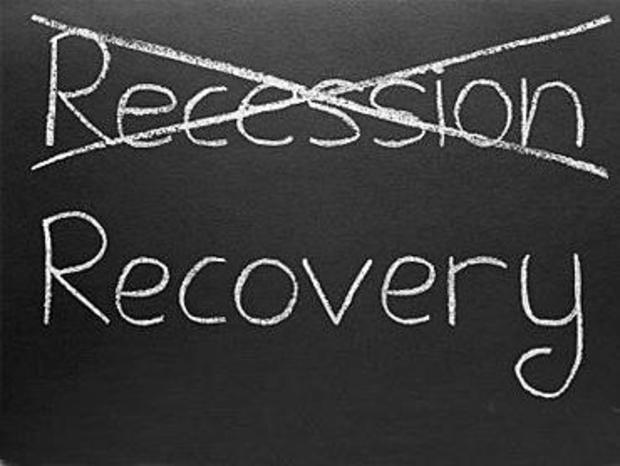Ask Jill: Who Cares If The Recession is "Officially" Over?

This post by Jill Schlesinger originally appeared on CBS' MoneyWatch.com.
There's a lot of hand-wringing over whether or not the recession is "officially" over. You may not know it, but there's actually a few wonky economists at the National Bureau of Economic Research Recession Dating Committee who determine the start and end dates of recessions. As of yesterday, there's no official end date to The Great Recession, which began in December, 2007, although committee member Robert J. Gordon wrote that "It is obvious that the recession is over."
Ultimately, the "official" beginning and end of a recession is irrelevant to most of us. So let's turn to what is important-YOUR financial life.
Here's a few general investing questions that I have received recently.
Dear Jill,
I just inherited about $25,000 that I would like to safely invest for the next 6 months to year, what should I do? I have never invested any money before. I want to be as safe as possible.
I am married, home is paid for and only one car payment. My husband is not retired and we are both 60 and 61 years old. The reason I am thinking more short term...is I would like to build a house on, so I want this to build up significantly so I can have a good down payment to start building possibly in the spring of 2011.
I have two special needs grandchildren that I would like to place some of this money in a certificate of some sort for their college...I can not put this certificate or stock in their names due to Medicaid situation. I am thinking $5,000 each for this.
Any advice you can give me will be most appreciated.
Here's the deal: if you know that you'll need this money within the next year, you absolutely, positively can't do anything risky with it. People often make the mistake of attempting to earn a little bit more with their short-term investment dollars, but it's rarely worth the extra worry/potential for loss. That means that with this money, you're left with plain vanilla options like: checking, savings, certificates of deposit (3, 6, 9 or 12-month) or a money market account.
You probably should check with an attorney who focuses on special needs situations. I'm not sure whether a 529 account that would be in your name or the name of the parents would disqualify the kids from Medicaid benefits in the future.
Here's another one:
I've lost a lot in my retirement fund. Do you recommend any companies to handle my retirement fund? I would like to start saving in a mutual funds but I don't know which one of the money managers are the good ones. I would like to set up a fund for my kids (529) but I don't know where to start.
Wow-that's a lot of ground to cover, but I'll give it a shot. I'm not sure what kind of retirement account you have, but if it's a employer-sponsored plan, like a 403 (b) or 401 (k), it's tough. There are some fee-based financial advisors who will manage these kinds, but of course it will cost you (probably somewhere in the range of 1% of the total value of the account).
Alternatively, if you want some help, but are willing to do the actual work yourself, try a site like MarketRiders, which will send you e-mails when your target portfolio allocation is out of whack. This site might also help with the next question about mutual funds. This article should help you avoid some of the common investor mistakes. To make your life easier, you should probably stick to index funds.
To learn more about 529 plans, you can go here -- remember that there are lots of ways to save for college and you should make sure that the vehicle you choose makes sense for your family.
Finally, here's an investment/retirement planning question:
I am getting close to retirement and investments are in stocks and funds. How can I move into something that will provide monthly income??
There are many ways to create retirement income, but first, you need determine how much money you'll need. From there, you can start building an allocation that will create income by adding dividend-producing stocks and a variety of bonds. Alternatively, you could investigate fixed annuities, which are essentially contracts with insurance companies that provide income streams for a fixed number of years or for life.
More on MoneyWatch


